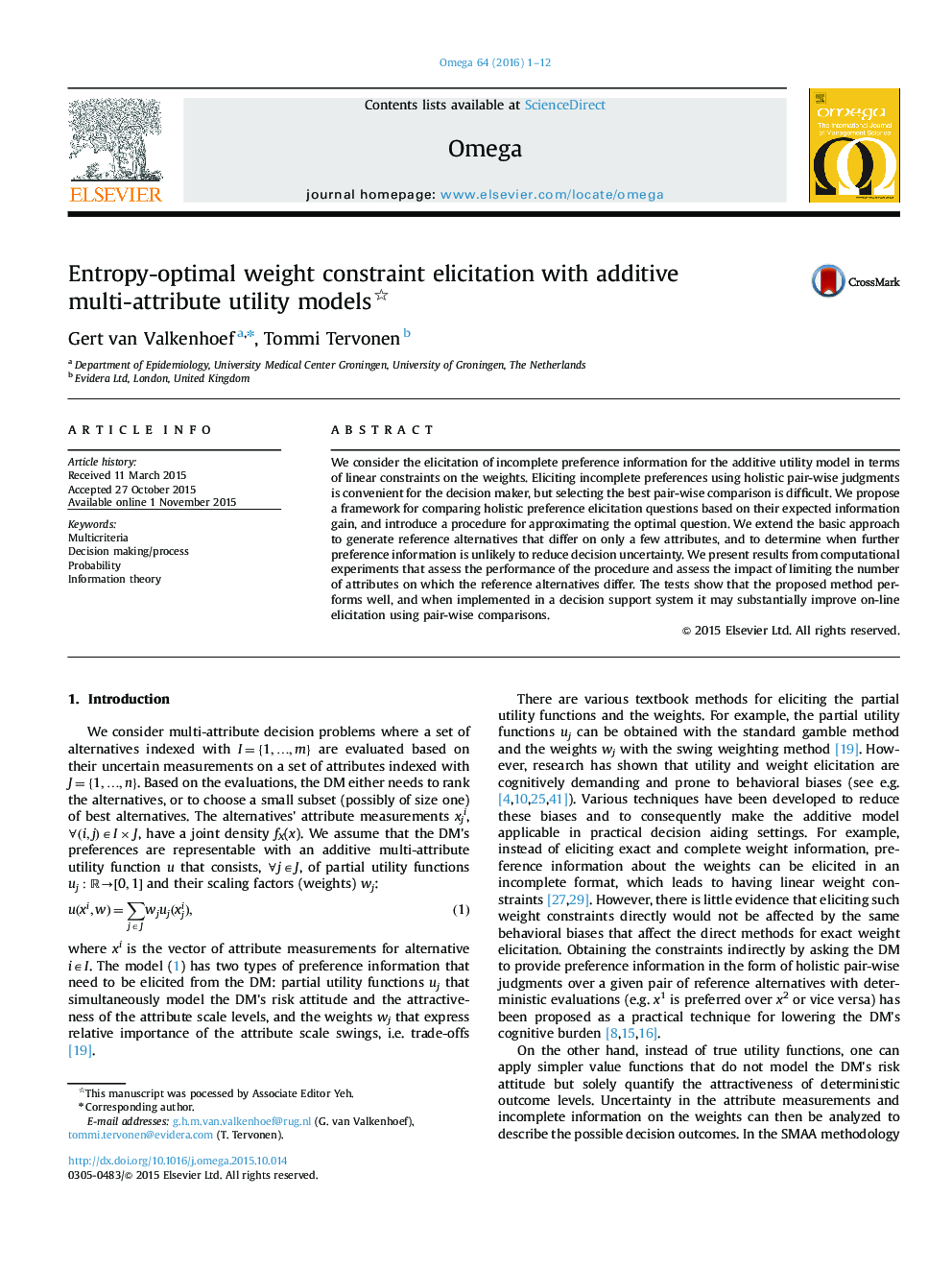| Article ID | Journal | Published Year | Pages | File Type |
|---|---|---|---|---|
| 1032350 | Omega | 2016 | 12 Pages |
•Holistic pair-wise judgments help elicit imprecise information on trade-offs.•Selecting the best pair-wise comparison questions can be difficult.•We propose an entropy-based framework to select optimal elicitation questions.•The framework applies when attribute values have probability distributions.•We apply it to pair-wise elicitation and evaluate it using computational tests.
We consider the elicitation of incomplete preference information for the additive utility model in terms of linear constraints on the weights. Eliciting incomplete preferences using holistic pair-wise judgments is convenient for the decision maker, but selecting the best pair-wise comparison is difficult. We propose a framework for comparing holistic preference elicitation questions based on their expected information gain, and introduce a procedure for approximating the optimal question. We extend the basic approach to generate reference alternatives that differ on only a few attributes, and to determine when further preference information is unlikely to reduce decision uncertainty. We present results from computational experiments that assess the performance of the procedure and assess the impact of limiting the number of attributes on which the reference alternatives differ. The tests show that the proposed method performs well, and when implemented in a decision support system it may substantially improve on-line elicitation using pair-wise comparisons.
